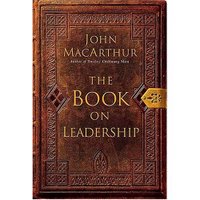McLaren Conclusion

As I stated in my introduction, I wanted to look at McLaren's message because I believed it would give me insight into his ministry and the ministry of Mar's Hill. And to understand the ministry of each would help one understand a large segment of what is deemed the emergent chuch movement (though not the entire thing). I was concerned with how McLaren handled Isaiah 61, Luke 4:16-21, and Mark 10:17-27. McLaren's hermeneutic seem to be the problem in each of those situations.
I certainly understand McLaren's frustration. A faith that makes no impact on the earth is neither biblical, nor attractive to the lost. McLaren attempts to motivate his listeners to care about today. He's clearly passionate about it (as were New Testament authors). With a limited amount of time, McLaren is forced to bypass discussions of justification, or Christ's substitutionary payment. Some may argue that McLaren can afford to assume these topics (possibly some may even blame these doctines for causing "current world apathy"), since they are popularly shared in other sectors of the church. However, without speaking o these doctrines, I found his message:
Bereft of Case--Throughout McLaren's message I couldn't help but feel like strawmen were being constructed just to be torn down. He spoke of a "Christian fatalism" as if it is considered orthodoxy. He painted a picture of those who hope in heaven as those who choose to do nothing about poverty and destroy the planet with wreckless abandon. Then, he tears that view down, presenting his as the more righteous. However, the biblical answer is to care for the poor and the environment AND for our hope to be found in our eternal dwelling. Neither the fatalist extreme (which he doesn't identify) nor McLaren's answer are the actual answer.
[Incidentally, I've heard some who are sympathtic with the emergent movement claim they hate how many in the church today think it is their Christian duty to vote Republican. They long for a faith that isn't corrupted by politics. However, I heard McLaren speak of politics, voting and economic reform more than any other preacher in the last four years or so.]
Bereft of Power--McLaren's entire point is to call the people at Mar's Hill to be on board with what God desires to do now in the environment and among the poor. As he builds his case, I expect him to call the church to bold action. However, when it comes time for application, McLaren's message is rather weak and vague. He asks the people to consider possibly getting on board with God's program and suggests potentially helping out the poor and the environment. In the end, his application seems to just be suggestions for self fulfillment and not a call to obedience to God.
Bereft of the Gospel--It just wasn't found in his message. Not only did he ignore issues of the cross, grace, faith, Christ's substituionary atonement, but he also seems to call the hope found in eternity suspect and speaks in ways that seem to deny the depravity of man. McLaren does not speak of man's need to be made right with God, rather calls people to simply "join God's program." Again, there is nothing wrong with preaching about how the gospel should impact now, but you should atleast identify the gospel.
Bereft of Mission--A couple of weeks ago, I was having lunch with a man who has more years of ministry experience than I have years of life. In the middle of the lunch, the Emergent Movement came up. He said to me, "You know, I hear them talk about being missional all the time. At first, I thought I knew what they meant, but now, since they talk about it like it's some kind of novel idea, I'm starting to think I don't know what they mean." I share in his confusion. What is the point of free trade coffee and driving a hybrid if we do not attach the gospel message to it? Shouldn't our mission be to declare the word of Christ?
I can understand why McLaren would downplay issues of eternity in his preaching. The modern "God loves you and has a wonderful plan for your life" gospel, followed by a call to "ask Jesus into your heart" creates a body of people who get their "fire insurance" and then wait to play a harp. There is no motivation to consider things in our present time. However, it seems that a call back to a biblical gospel message (not our mainstream, consumer driven style) would be just the cure McLaren craves. A call to repent from sin calls for a death to self and a life of service. When a saint trusts in Christ, he is motivated to improve current circumstances, for he has a hope that will not fade.
Is McLaren's message a "new kind of sermon?"
Not really. It seems that McLaren is making the same mistake many liberal protestant churches made years ago. At first, you assume people know the gospel, because you do not have time to address it in the midst of your message. Next, you find a people confused about what the gospel is. Lastly, you find people who begin to deny the gospel, for they've constructed something contrary in their hearts. McLaren's motive may be pure (only he knows), but I fear the movement may find itself powerless in a short amount of time.










